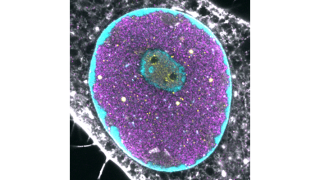How do we understand metaphors? Involvement of executive control in metaphor comprehension (Zhu)

Metaphors such as “time is money” or “a bright future” are everywhere in daily life. However, understanding them is not always easy. In one’s native language, understanding metaphors requires complex cognitive abilities, and for second language learners this is often even more difficult.
In her doctoral dissertation, MA Jiaqi Zhu investigated how a key mental skill, executive control, influences the ability to understand metaphors in both one’s native language and in their second language.
Zhu’s study confirmed the facilitative role of executive control in metaphor comprehension, modulated by familiarity. Specifically, in both Chinese (L1) and English (L2) metaphor comprehension tasks, individuals with low executive control showed that their brains worked harder to make sense of metaphors compared to those with high executive control, even though the overall temporal course patterns of processing were similar. The moderating effect of familiarity on the relationship between executive control and metaphor comprehension was observed in both studies I and II, albeit to varying degrees.
Study III further explored the impact of executive control on metaphor comprehension in cross-linguistic contexts. Results indicated that individuals with low executive control exhibited more pronounced differences between L1 and L2 metaphor comprehension compared to high executive control individuals, and L2 metaphor processing being more influenced by executive control.
“Based on my findings, executive control seems to have a dual role in L2 metaphor comprehension. First, suppressing irrelevant meanings and second, activating native-language concepts to support understanding of unfamiliar second language metaphors”, says Zhu.
In summary, the findings of this dissertation advance our understanding of how executive control engages in metaphor comprehension and the moderating role of familiarity. The studies reveal distinct neural mechanisms underlying cross-linguistic metaphor processing in individuals with varying executive control capacities. The studies also further elucidate the underlying causes of difficulties in metaphor comprehension, thereby contributing to the development of more efficient pedagogical approaches for metaphor comprehension in L2 acquisition.
MA Jiaqi Zhu will defend her doctoral dissertation "Involvement of executive control in metaphor comprehension" in building Ruusupuisto, lecture hall Helena (RUU D104) on October 24, 2025 at 12 o’clock noon. The opponent will be Reader Caroline Witton (Aston University, UK) and the custos will be Professor Jarmo Hämäläinen (University of Jyväskylä). The public defense will be held in English.
The dissertation can be read at http://urn.fi/URN:ISBN:978-952-86-1014-4.
The event will be held in English and it can be followed also at https://jyufi.zoom.us/j/65830330553.



